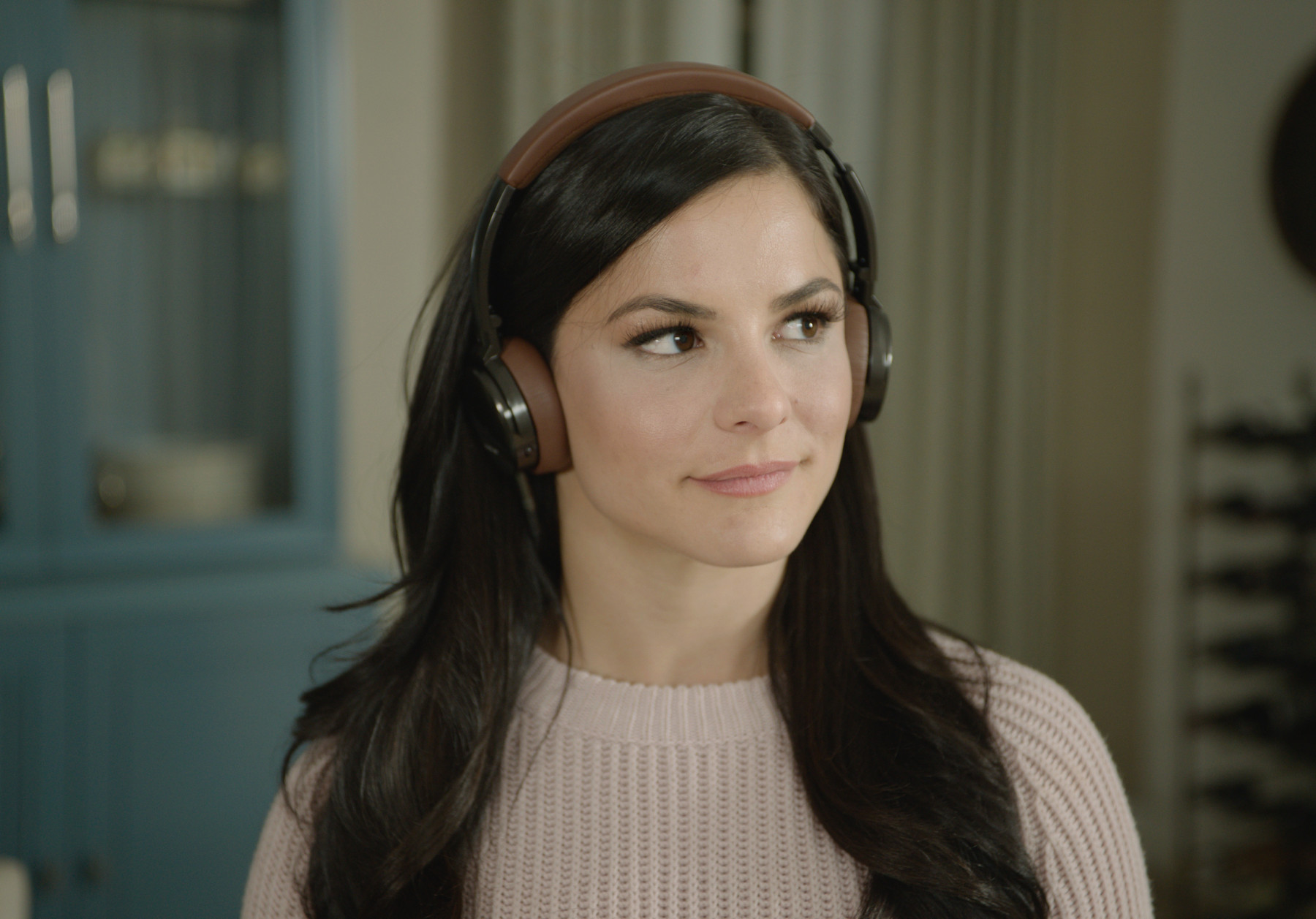MS in Harmony Makes Music Therapy More Accessible to Patients
Written by |

Photo courtesy of MS in Harmony via Eastward Films
Courtney Platt, a professional dancer who has MS, participates in some of the music therapy video segments.
Whether we are aware of it or not, music infiltrates every part of our daily lives. It may be as subtle and inadvertent as music playing in the background at the grocery store or as obvious and intentional as jamming to tunes on our own playlists. But music also can serve another more therapeutic purpose.
Music therapy can be used to help manage symptoms of central nervous system diseases, including multiple sclerosis (MS). It may help improve mental and emotional health, help with cognition and memory, and increase communication and social skills, among other benefits.
With these benefits in mind, Bristol Myers Squibb and the American Music Therapy Association collaborated to launch a website called MS in Harmony where MS patients can go to access a variety of videos, resources, and educational materials related to music therapy.
“The inspiration comes from taking a holistic approach to understanding the experience of patients living with MS inclusive of their physical, mental, and emotional needs,” Tina Deignan, PhD, senior vice president and U.S. business unit head for immunology at Bristol Myers Squibb, said in an emailed statement to Multiple Sclerosis News Today. “MS in Harmony was specifically developed to educate people with MS and their loved ones about how music therapy may help people achieve mind-body harmony through the potential impact that it has on physical and mental function.”
The MS in Harmony website hosts 28 instructional videos that walk users through music therapy practices in body, mind, and soul segments. Deignan expects to add more programming in 2022.
Additionally, on the website’s resources page, users can access MS in Harmony’s Spotify playlists, which range from motivational music to songs that encourage movement to Latin rhythms. MS in Harmony also lists organizations for people with MS and ways to get involved in music therapy.
The educational videos include MS-focused music therapy sessions with board-certified music therapists. These sessions are pre-recorded and available for free. While MS patients may find the videos helpful and enjoyable, they should not be considered a substitute for personalized sessions, according to the website.
In some of the videos, actor and singer Ben Platt, star of the musical “Dear Evan Hansen,” and his sister-in-law Courtney Platt, a professional dancer who was diagnosed with relapsing-remitting MS in 2012, join the therapists to help demonstrate some of the techniques. Both are paid consultants for MS in Harmony.

Courtney Platt (left), her son Joey, and her husband, Jonah Platt. (Photo courtesy of Jonah Platt)
Courtney Platt, who made appearances in the popular TV shows “Glee” and “So You Think You Can Dance,” is now a mother to a 2-year-old boy, a choreographer, and an on-demand instructor for fitness company CLMBR. She’s used the segments on MS in Harmony to combine her health with her love of music.
“I have always been moved by music,” Platt, 33, said in a phone interview with Multiple Sclerosis News Today. “Music moves many different ways and so to actually use it as a tool in an organized way is really cool.”
Platt said she’s been able to use music to manage some of her most difficult symptoms, such as fatigue, brain fog, and anxiety. In one module that Platt filmed for MS in Harmony, the music therapist played a song and had Platt explain how she felt when she heard it.
“It was crazy because I don’t like meditating,” she said. “I am not a person that just sits still. It was this form of meditation and trance putting me and my brain somewhere else. That was really amazing.”
She’s found other ways that music has helped her, especially with cognitive function, including creating a song to help remember a to-do or grocery list. In some patients with MS, speech can be affected. Though she jokes that her husband, Jonah, and brother-in-law Ben are the singers of the family, she’s been able to strengthen her voice through singing.
Science has begun to back up some of the benefits of music therapy. One study out of the University of Ghent in Belgium found a small group of patients with MS walked better and faster while listening to music. Another study reported that motor imagery, in which a person imagines doing an activity without actually doing it, set to musical and verbal cues may improve walking speed and distance, and lessen feelings of fatigue in people with MS.
MS in Harmony also has a segment about gait and music, featuring certified music therapist Betsy Hartman and Ben Platt.
“Music therapy has long been used as part of comprehensive disease management plans for people living with central nervous system diseases, like MS,” Hartman said. “There’s a growing body of research on the potential benefits of music therapy for people living with MS and the impact it may have on both physical and mental function.”
For Courtney Platt, what makes MS in Harmony unique compared with other programs is that it can fit the schedule of a busy mother like her. While she hasn’t had a chance to pursue music therapy outside of MS in Harmony, it’s a resource to which she can constantly return. The virtual setting allows anyone to do it from anywhere with an internet connection.
In one of her favorite modules, she was asked to describe a few things she loves about herself and turn that into a song. It was cathartic for her.
“If one day I wake up and I can’t walk, there are a thousand things going through your brain that in a dark moment make you feel like damaged goods,” she said. “I’m extremely hard on myself so to me, it’s something that I try to do all the time to remind myself I am not damaged goods just because I have MS.”

